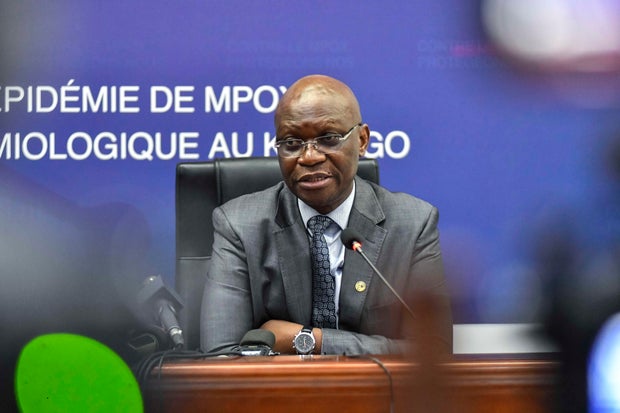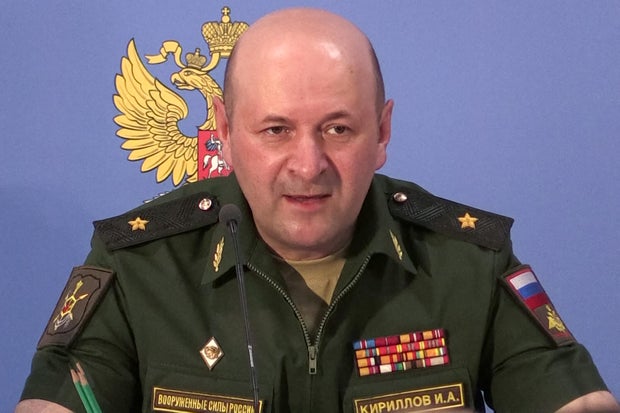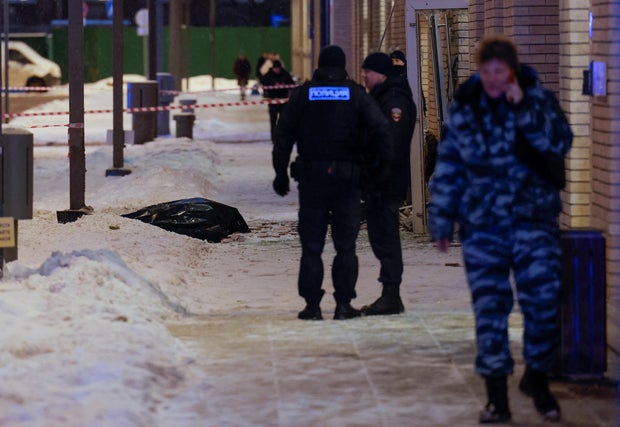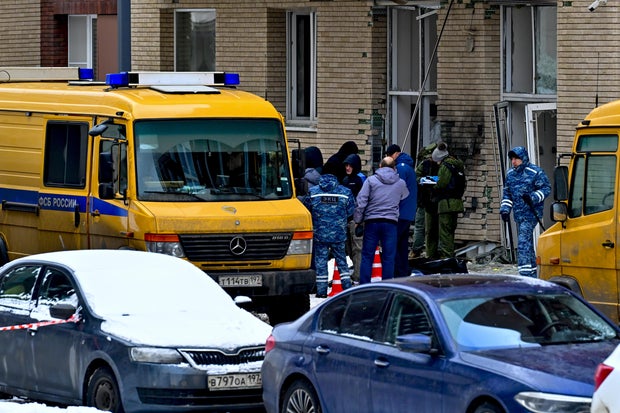CBS News
Transcript: Rep. Tony Gonzales on “Face the Nation with Margaret Brennan,” Sept. 1, 2024
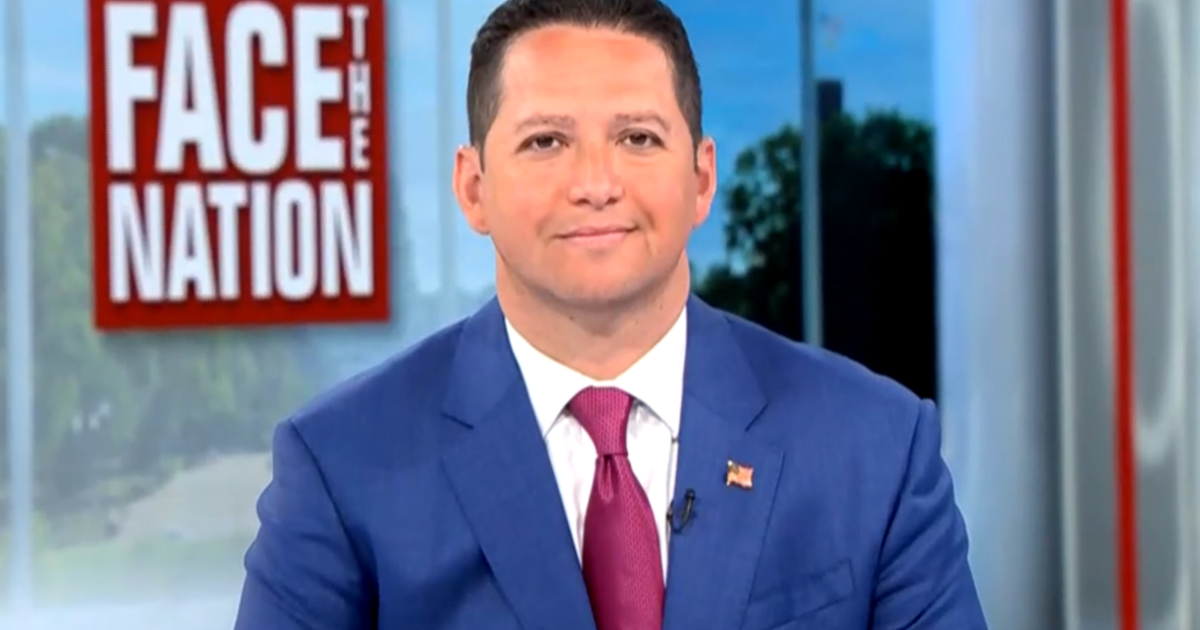
The following is a transcript of an interview with Rep. Tony Gonzales, Republican of Texas, on “Face the Nation with Margaret Brennan” that aired on Sept. 1, 2024.
NANCY CORDES: We are joined now by Texas Republican Congressman Tony Gonzales. Congressman, thank you so much for being with us here in Washington. You represent a border district. You heard what Camilo just reported, and let’s put some numbers up on the screen so people really know what we’re talking about. All year long, the number of migrant encounters along the southern border was hovering a little below 200,000 a month. Then this executive order went into place in early June, and those numbers plunged to 100,000 in July, they were cut in half. Are you ready to call this move a success?
REP. TONY GONZALES: Nancy, it’s great to be here. You know, I represent nearly half of the overall southern border. I literally was on the border on Friday. What I can tell you is things are getting worse. And let me give you an example. So in the- in the New Mexico area, to date, there’s been 100 illegal immigrants that have perished. Okay, every part of the border is different. Parts of my district it takes you three days humping through the desert in order to make it to the border. In the New Mexico area, it takes you one hour. So, how is 100 people dying in one hour? The reason is these criminal organizations are holding these migrants in these stash houses for sometimes over a month, feeding them one meal and one bottle of water a day. So when it is time for them to finally make that trek, they give them caffeine pills and they try to rush them over. So in many- many cases, the humanitarian crisis along the border is getting worse. The other piece of it too in El Paso, one of the safest countries in America, the FBI just conducted an operation this week, and they scooped up dozens of these criminal gangs, these anti gang task forces. So in many cases, Americans are less safe because of this, and migrants are less safe because of this. I’ve been of the advocate, this is how you solve it. If somebody comes over illegally, they immediately get deported. You also double down on legal immigration if you- if we want to win the space race, we’re going to need engineers from all over the world. If we’re going to grow our economy, we’re going to need- we’re going to need the hospitality industry, construction workers and other areas. You double down on work visas, you vet people, and you double down on that. We’re not seeing any of that.
CORDES: So, you’ve been pushing for the administration to take executive action for years. They’ve now done it, and you’re saying you’re not happy about it, even though the numbers have come down so sharply.
REP. GONZALES: Well ask the 100 families that were- that died. This is a part of- the ugly part of it is so many people are dying- and those are the people that are dying. What about the people that are getting assaulted and other areas, it’s getting worse. So people are looking at the numbers and thinking, oh, it’s getting better. I look at it, who is coming over and what is happening to these people. In many cases, these criminal organizations, these Tren de Aragua, TDA, they’re growing in prominence, these Venezuelan gangs. They’re all over the country, and they’re seeping their- their tentacles into our society. We have to get ahead of this, and we need real solutions. That real solution is holding these people accountable, deporting people that aren’t here, and double downing- double down on legal work visas, people doing it the right way.
CORDES: Right, so there are bipartisan proposals to deal with these very complicated problems you’re describing. One of them was- was struck in the Senate, but former President Trump scuttled that deal, as you know, do you wish that he would have allowed that to go forward?
REP. GONZALES: There were some positive things out of that, the border package that the Senate was working on, but there was some very negative things. I wouldn’t have voted for that. The reason I wouldn’t voted for it because it allowed 5000 people to break the law before you enact it, the numbers should always be zero. We can both be firm on illegal immigration, and there was no talk of legal immigration. What about rewarding those that are doing it the right way. What about our allies in Afghanistan that we’ve left behind? There’s some things that could have been done. That was a failed- it was a failed bill. There’s thousands of these bills, that was a failed bill before it even gets going. I’m looking for serious partners.
CORDES: There’s a bipartisan bill in the House. Do you support that?
REP. GONZALES: Which bill? I mean, the bill that I look at it through the lenses is–
CORDES: I’m talking about Congresswoman Escobar’s bill.
REP. GONZALES: Oh that has no chance of going anywhere. You know why? Because it’s 500-pages long. So that gives you anyone, any one person, to say, I don’t like this bill. The other piece of it too is it talks about allowing people that are here illegally, pathway to citizenship. That is a- is dead on arrival. You don’t even want to go there. You have to start with securing the border and work visas, people that are vetted here to come. You want to talk about pathway to citizenship. That’s code for you really do not want to solve the problem.
CORDES: Okay, but, you say you want to solve the problem, and yet you don’t like any of the bipartisan proposals out there. Are you writing your own?
REP. GONZALES: I do. Yeah, I have a bill. It’s actually three-pages long, and what it does is it extends work visas from one year to three years, and it allows people to streamline the process. Instead of mailing in work visas, you do it online, like everyone else. And there’s also a border security piece to it too. So you can solve- you can do both. We can both be warm and welcoming, and we can both secure the border. All the proposals right now have no chance of it. And here’s another thing, when- when was- has Tim Walz ever been to the border? When was the last time he’s been to the border? So you have to see it. To hear these stories about the 100 migrants that have died in New Mexico, you have to see it firsthand.
CORDES: You served in the Navy for 20 years as a veteran. I want to get your take on what happened this week at Arlington National Cemetery. The Secretary of the Army felt that she had to put out a statement saying that, “an ANC employee”, an Arlington National Cemetery employee, “who attempted to ensure adherence to the rules, was abruptly pushed aside” when the Trump campaign tried to bring a campaign photographer onto the grounds with the former president and then a top Trump adviser posted even after that. “I’m reposting this to hope to trigger the hacks at the secretary of Army’s office.” Have you ever seen a campaign talk this way about the military?
REP. GONZALES: You know, the funny thing about President Trump is he gets all the attention, and no matter what he does, sometimes that gets spawned this way or the other. I can tell you that veterans–
NANCY CORDES: That’s not spin, that’s his own campaign staff.
REP. GONZALES: Well, I can tell you veterans support Trump far and away, and the fact that he was there to highlight that the 13 Americans that were killed at Abbey Gate, I think that’s something that’s overlooked. Once again, I served in Afghanistan, unlike Tim Walz, who did not serve in Afghanistan. I’ve been there. I retired as an E-9, unlike Tim Walz, who retired as an E-8. It’s important for us to show up at the–
CORDES: Wait are you saying- I’m just curious when you- when you compare your service to Tim Walz, are you saying that he’s somehow less of a Veteran?
REP. GONZALES: I’m saying he lied about what pay grade he retired at. And I’m saying I’m not lying about the pay grade I retired at. I’m also saying it’s important that we- Arlington is a very special place.
CORDES: It is.
REP. GONZALES: We have to make sure it’s a special place, and we have to keep politics out of it. And I think it’s important that we do that. And so, you know, I wish- I wish both President Trump and, you know, President Biden were there highlighting the fact of these Gold Star families. This is what we need to get back to. It’s so much finger pointing. I get it. It’s towards the tail end of the- of the election, but we have to get back to putting veterans first, putting our families first, and putting the American people above everything else.
CORDES: Congressman Tony Gonzales of Texas, thank you so much for being here with us this morning.
REP. GONZALES: Thanks Nancy.
CORDES: I appreciate it, and we’ll be back in a moment. Stick with us.
CBS News
2 sisters, 7 years apart in age, also receive heart transplants 7 years apart in Chicago
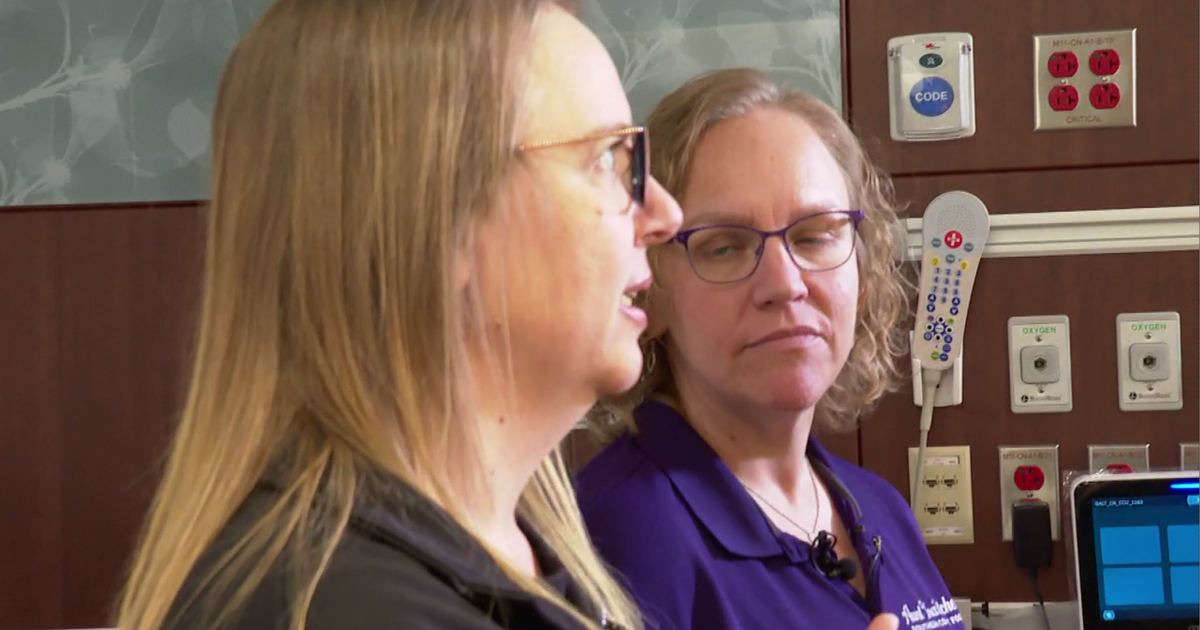
CHICAGO (CBS) — Two sisters have grateful hearts after they both received heart transplants at the same age—seven years apart.
Younger sister Meredith Everhart and older sister Abbey Cannon are now bonded by a genetic condition and a second chance at life.
“What’s ironic is that when she needed a heart transplant, was exactly the same age I needed a heart transplant,” said Cannon. “Seven years apart in age, seven years apart within 30 days of transplant, and our birthdays are within 30 days.”
The sisters share a special bond of getting a second chance at life, which they both received at the age of 38 years old.
Both sisters suffer from hypertrophic cardiomyopathy—otherwise known as HCM.
The genetic condition is a form of heart disease that causes the heart muscle to thicken.
In 2012, Cannon had chest pain. She was misdiagnosed in Nashville, Tennessee, and got a second opinion at Northwestern Medicine in 2016.
“Within six months, I was inpatient on an aortic balloon pump waiting for a heart,” Cannon said. “I ended up getting my heart 32 days later, So my date is February 27, 2017.”
Just months after Cannon’s transplant, Everhart was diagnosed with HCM too. She tried medication and participated in clinical trials, but her condition kept getting worse.”
“For me, it was, she’s right—I was in denial for a long time,” said Everhart, “and I didn’t want to be sick. I was in my 20s. I was in my early 30’s. I was like, this is not happening. I saw how bad she suffered.”
In May 2022, Everhart got COVID-19, and it sent her into heart failure.
She was added to the transplant list one year later.
“I got the call on January 29 of this year, 2024, and it’s been a journey,” Everhart said. “It’s been fantastic though. Northwestern has been great.”
Cannon said she can’t stress enough how important it is to become an organ donor.
“Had we not had someone that gave that most selfless gift, neither of us would be here,” she said.
CBS News
Congo says mystery disease behind dozens of deaths of women and children finally identified as severe malaria

Johannesburg — For weeks it was dubbed simply “Disease X.” But the mysterious flu-like disease that has killed more than 143 people — mainly women and young children — in the Democratic Republic of Congo has finally been identified.
“The mystery has finally been solved,” Congo’s health ministry declared in a statement on Tuesday. “It’s a case of severe malaria in the form of a respiratory illness.”
The health agency said malnutrition in the hardest-hit region had weakened the local population’s immunity, leaving them more vulnerable to the disease. People who contracted the malaria infection have exhibited symptoms including headache, fever, cough and body ache.
The Congo’s health minister had told journalists the country was on “maximum alert” over the spread of the previously unidentified disease, and health officials told CBS News in early December that the remoteness of the epicenter of the outbreak and lack of a diagnosis made it difficult to launch a concerted response.
Samy Ntumba Shambuyi/AP
At least 592 cases were reported after the alert was first raised by Congo’s health ministry on Oct. 29. The ministry said the disease had a fatality rate of 6.25%. More than half of the deaths recorded were children younger than five who were severely malnourished when they contracted the disease, according to the World Health Organization.
At a press briefing on Dec. 10, WHO Director-General Tedros Adhanom Ghebreyesus said 10 out of 12 samples from patients suffering from the mysterious disease had tested positive for malaria, but he said they were still testing at the time for other diseases.
The Congolese government had sent a rapid intervention team to the Kwango province, 435 miles southeast of capital city Kinshasa, consisting of epidemiologists and other medical experts. Their objective was to identify the disease and mount a suitable response. Government officials had earlier warned locals to avoid touching people infected with the illness or the bodies of those who had died.
Congo has suffered from many disease outbreaks in recent years, including typhoid, malaria and anemia. The country has also grappled with an mpox outbreak, with more than 47,000 suspected cases and over 1,000 suspected deaths from the disease, according to the WHO.
Anti-malaria medicine provided by the WHO was being distributed at local health centers in Congo, and WHO officials said more medical supplies were due to arrive in the country Wednesday.
It’s the rainy season in Congo, which often sees a rise in malaria cases, and will certainly complicate treating those most at risk.
CBS News
Russia says suspect detained in killing of Gen. Igor Kirillov, head of Russian chemical weapons unit

Moscow — Russia’s security service said Wednesday that it had detained a suspect in the killing of a senior general in a Moscow bomb blast. The suspect was described as an Uzbek citizen whom the agency said had been recruited by Ukrainian intelligence services.
Ukrainian security sources told CBS News on Monday that the Security Service of Ukraine (SBU) was behind the explosion that killed Lt. General Igor Kirillov. The claim couldn’t be independently verified, but Russian officials quickly vowed to take revenge against Ukraine’s leaders.
Russia’s Federal Security Service didn’t name the suspect, but it said he was born in 1995. According to an FSB statement, the suspect said he was recruited by Ukrainian special services.
AFPTV / AFP via Getty Images
“Kirillov was a war criminal and an absolutely legitimate target, since he gave orders to use prohibited chemical weapons against the Ukrainian military,” an informed source in the SBU asserted to CBS News. “Such an inglorious end awaits everyone who kills Ukrainians. Retribution for war crimes is inevitable.”
Kirillov was killed by a bomb hidden in an electric scooter outside his apartment building in Moscow, a day after Ukraine’s security service leveled criminal charges against him. His assistant also died in the attack.
The FSB said the suspect had been promised a reward of $100,000 and permission to move to a European Union country in exchange for killing Kirillov. It said that, acting on instructions from Ukraine, the suspect traveled to Moscow, where he picked up a homemade explosive device. He then placed the device on an electric scooter and parked it at the entrance of the residential building where Kirillov lived.
The suspect then rented a car to monitor the location and set up a camera that livestreamed video from the scene to his handlers in the central Ukrainian city of Dnipro. When Kirillov was seen leaving the building, the suspect detonated the bomb.
According to the FSB’s statement, the suspect faces “a sentence of up to life imprisonment.”
Kirillov, 54, was the chief of the Russian military’s radiological, biological and chemical protection forces. Either Kirillov himself or his military unit were sanctioned by several countries, including the U.S., Britain and Canada, for the alleged use of chemical weapons on the battlefield in Ukraine. On Monday, Ukraine’s SBU had opened a criminal investigation against him, accusing him of directing the use of banned chemical weapons.
Maxim Shemetov/REUTERS
Ukraine’s SBU has said it recorded more than 4,800 occasions when Russia used chemical weapons on the battlefield since President Vladimir Putin launched his full-scale invasion in February 2022. In May, the U.S. State Department announced sanctions against Kirillov’s unit, saying the U.S. had recorded the use of chloropicrin, a poison gas first deployed in World War I, against Ukrainian troops.
Russia has denied using any chemical weapons in Ukraine and, in turn, has accused Kyiv of using toxic agents in combat, and Kirillov was allegedly behind the spread of that propaganda.
Kirillov, who had been in his post since April 2017, was accused by the U.S. government of helping to spread disinformation about biological weapons and research.
In March 2023, about a year into Russia’s full-scale invasion, the U.S. State Department said Kirillov had “significantly increased his media engagement” to issue repeated, baseless claims that the U.S. government had been involved in creating both the mpox virus and COVID-19, and that the U.S. “is developing biological weapons able to selectively target ethnic groups.”
“The U.S. Government is concerned that this false narrative may be a prelude for a false-flag operation, where Russia itself uses biological, chemical, or nuclear weapons in Ukraine, and then attempts to blame it on Ukraine and/or the United States,” the State Department said at the time.
Sefa Karacan / Anadolu via Getty Images
The bomb used in Tuesday’s attack was triggered remotely, according to Russian news reports. Images from the scene showed shattered windows and scorched brickwork.
Russia’s top state investigative agency said it’s looking into Kirillov’s death as a case of terrorism, and officials in Moscow vowed to punish Ukraine.


